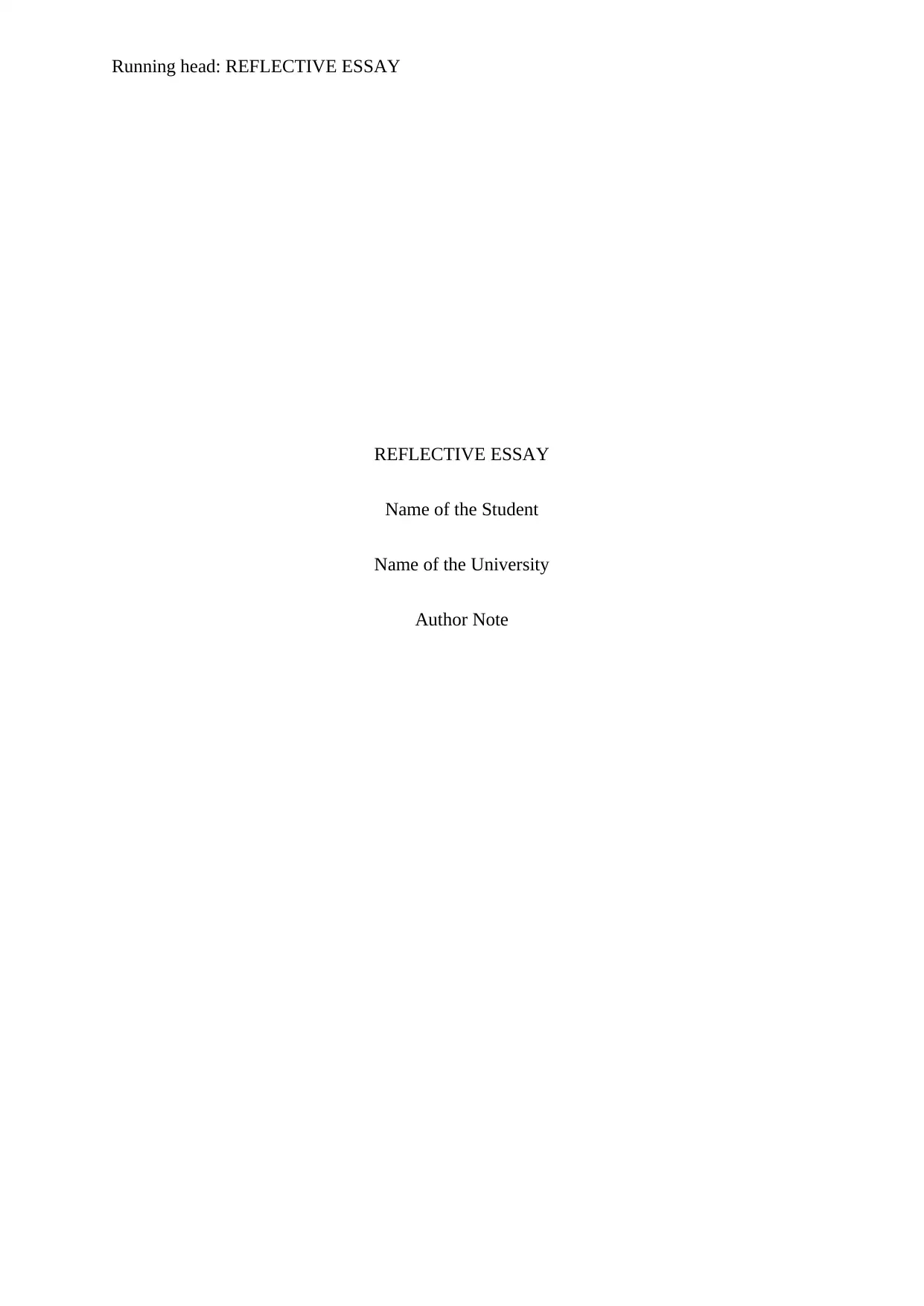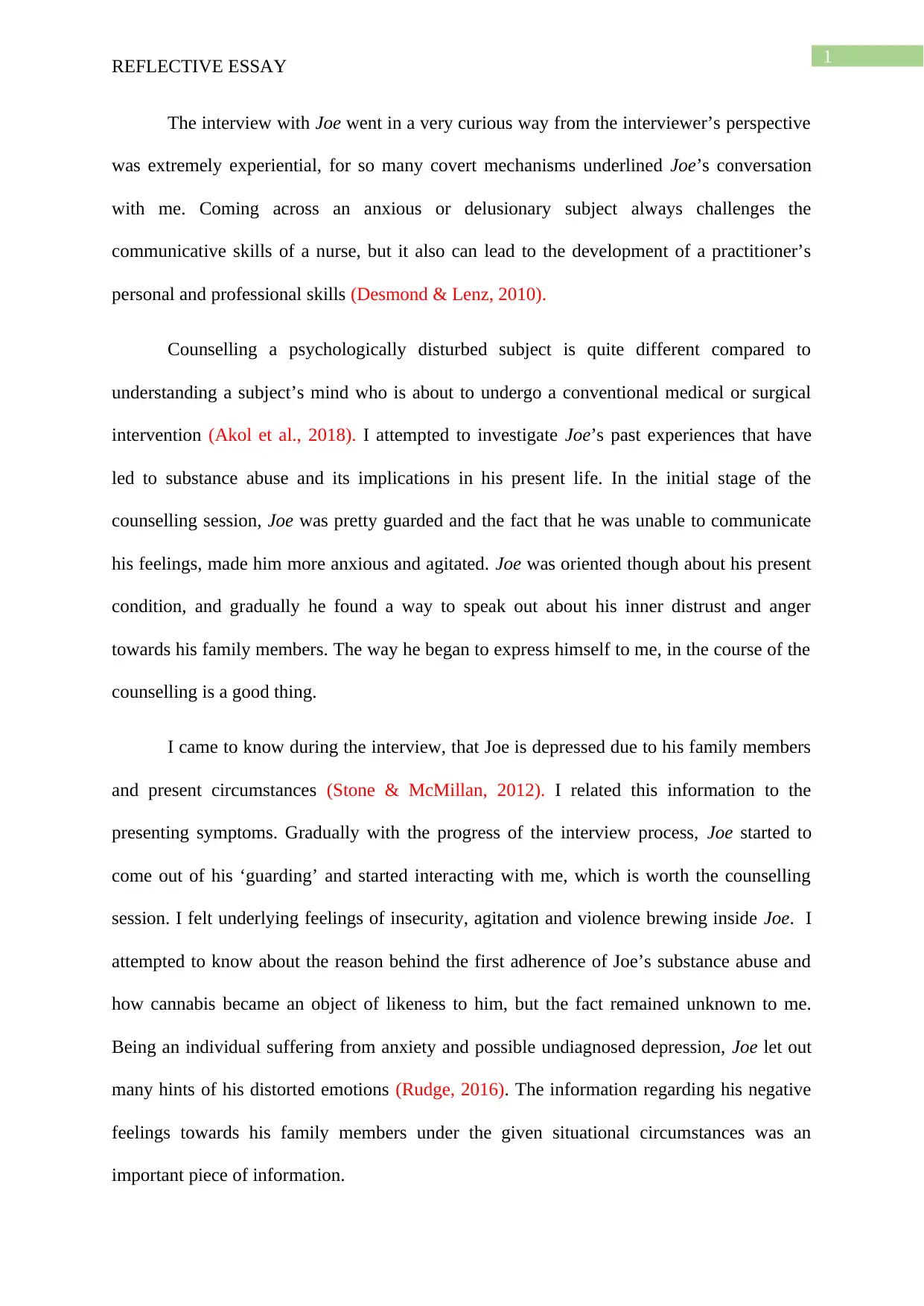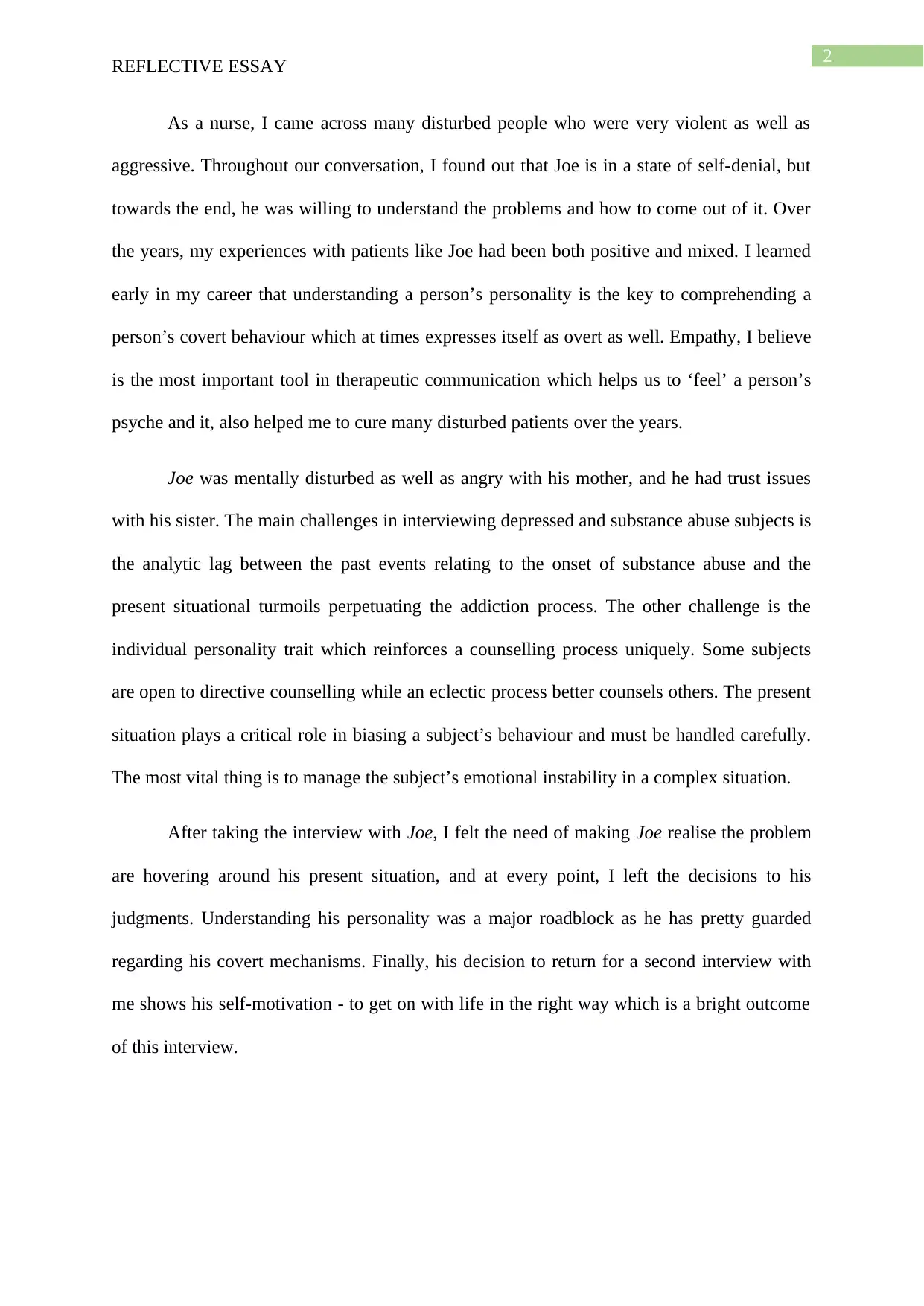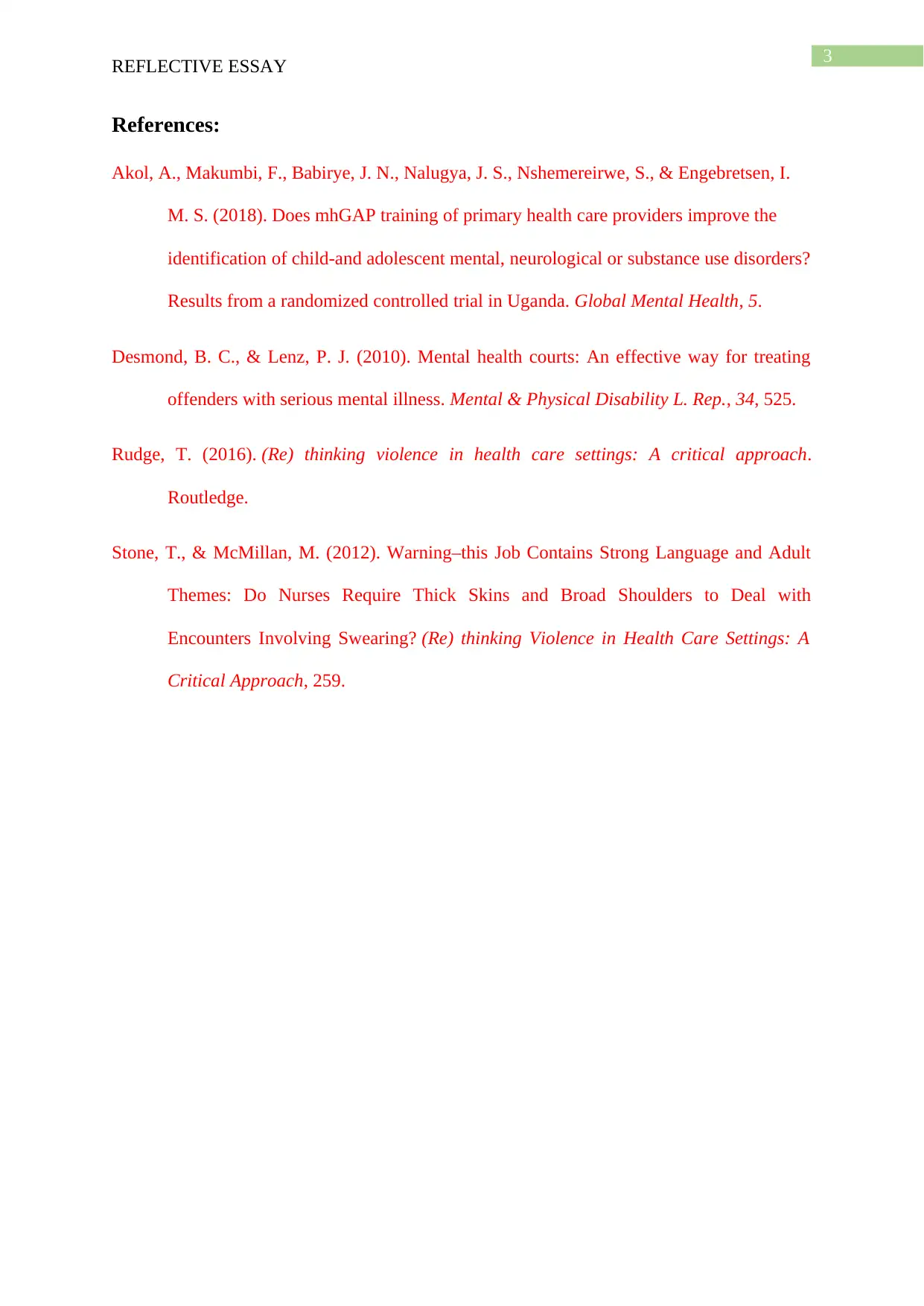Reflective Essay: Experience of a Nurse in Counselling Session
VerifiedAdded on 2023/01/18
|4
|951
|96
Essay
AI Summary
This reflective essay provides an in-depth analysis of a nurse's counselling session with a patient struggling with substance abuse and mental health issues. The essay explores the challenges of communicating with a disturbed individual, the importance of empathy in therapeutic communication, and the nurse's attempts to understand the patient's past experiences and present circumstances. The author discusses the patient's guardedness, expressions of distrust and anger, and the underlying feelings of insecurity and violence. The essay also highlights the difficulties in addressing the analytic lag between past events and present addiction, and the significance of managing the patient's emotional instability. The nurse reflects on the outcomes of the session, including the patient's self-motivation to seek further help, and the importance of allowing the patient to make their own decisions. References to relevant literature are included.
1 out of 4











![[object Object]](/_next/static/media/star-bottom.7253800d.svg)